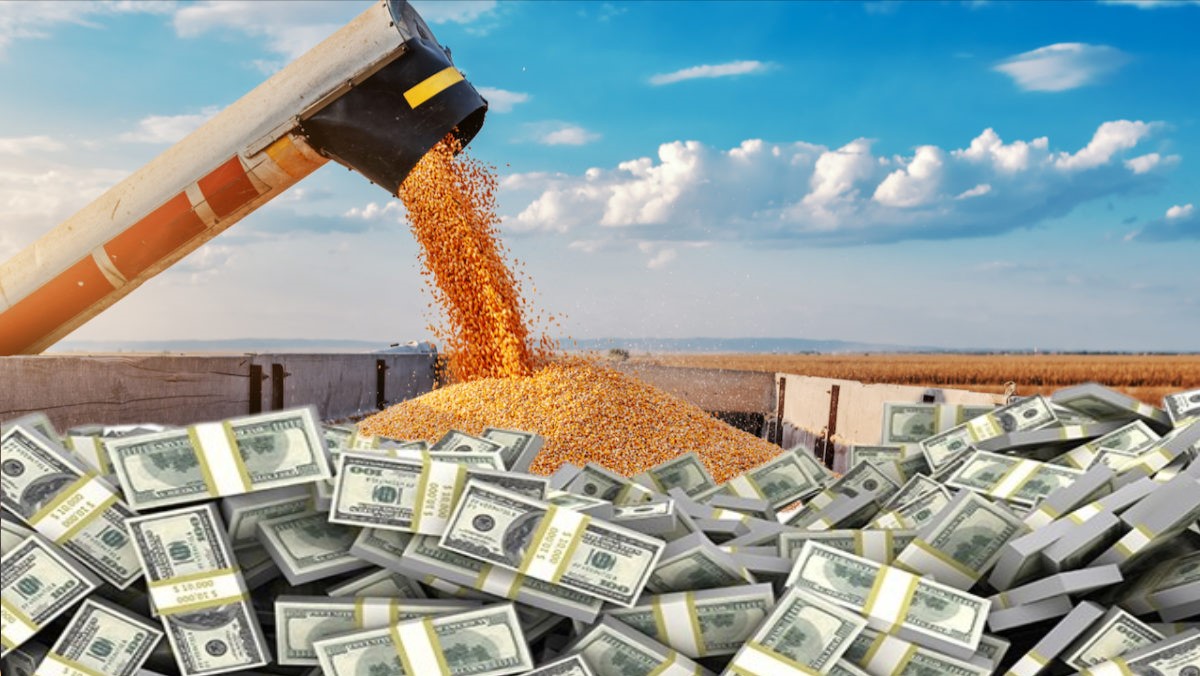
Best Commodity ETFs To Buy
Commodity ETFs to Simplify Investments in Commodities
ETFs are ideally suited for retail investors, as commodity trading on the futures market is best left to the pros. Commodity exchange-traded funds (ETFs) provide investors with exposure to various categories of commodities, making participation in the commodities market convenient and accessible.
Commodity ETFs come in different forms. Some ETFs buy and sell physical commodities, such as the Abrdn Physical Palladium Shares ETF (PALL), which stores palladium bars in a J.P. Morgan vault. Other commodity ETFs invest in the stocks of companies involved in commodity production, transportation, or trading. For example, the VenEck Gold Miners ETF (GDX) tracks the performance of gold mining companies.
There are also commodity ETFs that trade commodity futures contracts, which aim to track price changes in an underlying commodity without directly owning physical products or company shares. An example is the Abrdn Bloomberg All Commodity Longer Dated Strategy ETF (BCD), which follows the Bloomberg Commodity Index (BCOM) to capture the performance of the entire commodities futures market.
Investors seeking diversification among different commodities or exposure to multiple commodity production companies can turn to commodity ETFs.
commodities ETFs can offer attractive returns during periods of rising commodity prices, they can also be expensive and may merely keep up with inflation over the long term. Futures-based commodity ETFs, in particular, may be more suitable for shorter-term speculation rather than a buy-and-hold strategy due to factors like contract rollovers that can impact returns.
Considering the current climate of rising prices, commodities have historically demonstrated resilience. From energy sources to agricultural products to metals, commodities have naturally seen their values rise amid inflationary pressures. As a result, several commodity stocks and commodity ETFs have performed well in the past year.
While inflation may be cooling, it remains at elevated levels. As investors navigate this environment, considering commodities and commodity ETFs as a part of a diversified portfolio becomes increasingly important. Hard assets like commodities can serve as a hedge against rising prices and provide access to returns that are uncorrelated with the broader stock market.
Those Are The Best Commodity ETFs To Buy:
Abrdn Bloomberg All Commodity ETF (BCD), iShares GSCI Commodity Dynamic Roll Strategy ETF (COMT), Abrdn Physical Palladium Shares ETF (PALL), Invesco DB Oil ETF (DBO), Invesco DB Commodity Index ETF (DBC), SPDR Gold Shares (GLD), VanEck Gold Miners ETF (GDX), United States Copper Index Fund LP (CPER), Global X Copper Miners ETF (COPX), Global X Uranium ETF (URA), United States Oil Fund LP (USO), United States Natural Gas Fund (UNG), Teucrium Soybean Fund (SOYB), iShares Silver Trust (SLV), Invesco Optimum Yield Diversified Commodity Strategy No K-1 ETF (PDBC)
-
BCD: Abrdn Bloomberg All Commodity ETF
- Tracks the Bloomberg Commodity Index (BCOM) for diversified exposure to tangible commodities.
- Minimizes concentration in any specific commodity or sector.
-
COMT: iShares GSCI Commodity Dynamic Roll Strategy ETF
- Replicates the S&P GSCI Dynamic Roll Index for exposure to a diverse range of commodity futures.
- Utilizes a dynamic roll strategy to maximize efficiency and reduce costs.
-
PALL: Abrdn Physical Palladium Shares ETF
- Provides exposure to palladium, a precious metal used in catalytic converters.
- Offers transparency with daily posted bar counts and storage in a J.P. Morgan vault.
-
DBO: Invesco DB Oil ETF
- Tracks the DBIQ Optimum Yield Crude Oil Index for exposure to West Texas Intermediate (WTI) crude oil futures contracts.
- May also hold US Treasury securities and money market funds.
-
DBC: Invesco DB Commodity Index ETF
- Aims to replicate the DBIQ Optimum Yield Diversified Commodity Index for diversified commodity exposure.
- Goes beyond crude oil, enhancing portfolio diversification.
-
GLD: SPDR Gold Shares
- Provides exposure to tangible gold without the need for ownership or storage.
- Serves as an inflation hedge and safe haven investment.
-
GDX: VanEck Gold Miners ETF
- Tracks the NYSE Arca Gold Miners Index for exposure to leading publicly traded gold mining companies.
- Offers exposure to the growth potential of gold extraction firms.
-
CPER: United States Copper Index Fund LP
- Reflects the performance of New York copper futures contracts.
- Benefits from increasing demand due to renewable energy initiatives and global economic recovery.
-
COPX: Global X Copper Miners ETF
- Invests in copper mining and copper-related component manufacturing companies.
- Takes advantage of the growing demand for copper in renewable energy infrastructure.
-
URA: Global X Uranium ETF
- Focuses on companies involved in uranium mining and nuclear component production.
- Addresses the need for sustainable, reliable energy sources in the transition to a low-carbon economy.
-
USO: United States Oil Fund LP
- Designed to track the West Texas Intermediate crude oil price.
- Provides a straightforward method to gain exposure to oil prices.
-
UNG: United States Natural Gas Fund
- Offers exposure to natural gas price fluctuations through futures contracts.
- Provides investors with access to the natural gas market.
-
SOYB: Teucrium Soybean Fund
- Invests in soybean futures contracts to gain exposure to the soybean market.
- Offers an easy method for exposure to agricultural commodities.
-
SLV: iShares Silver Trust
- Tracks the tangible silver price for exposure to industrial and precious metals.
- Provides an alternative to gold for precious metals diversification.
-
PDBC: Invesco Optimum Yield Diversified Commodity Strategy No K-1 ETF
- Diversifies exposure across 14 commodities using futures contracts.
- Eliminates the need to file K-1 tax forms typically associated with commodity investments.















